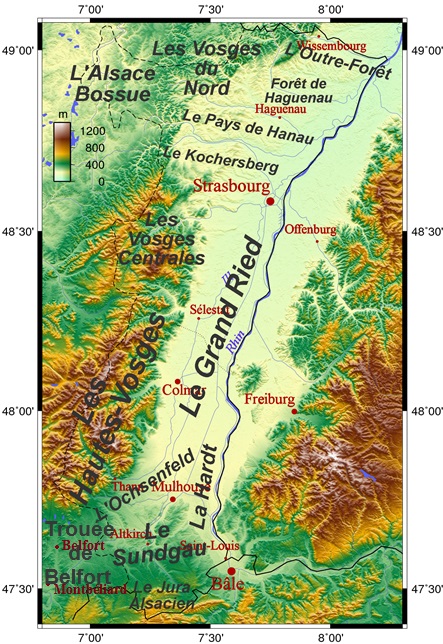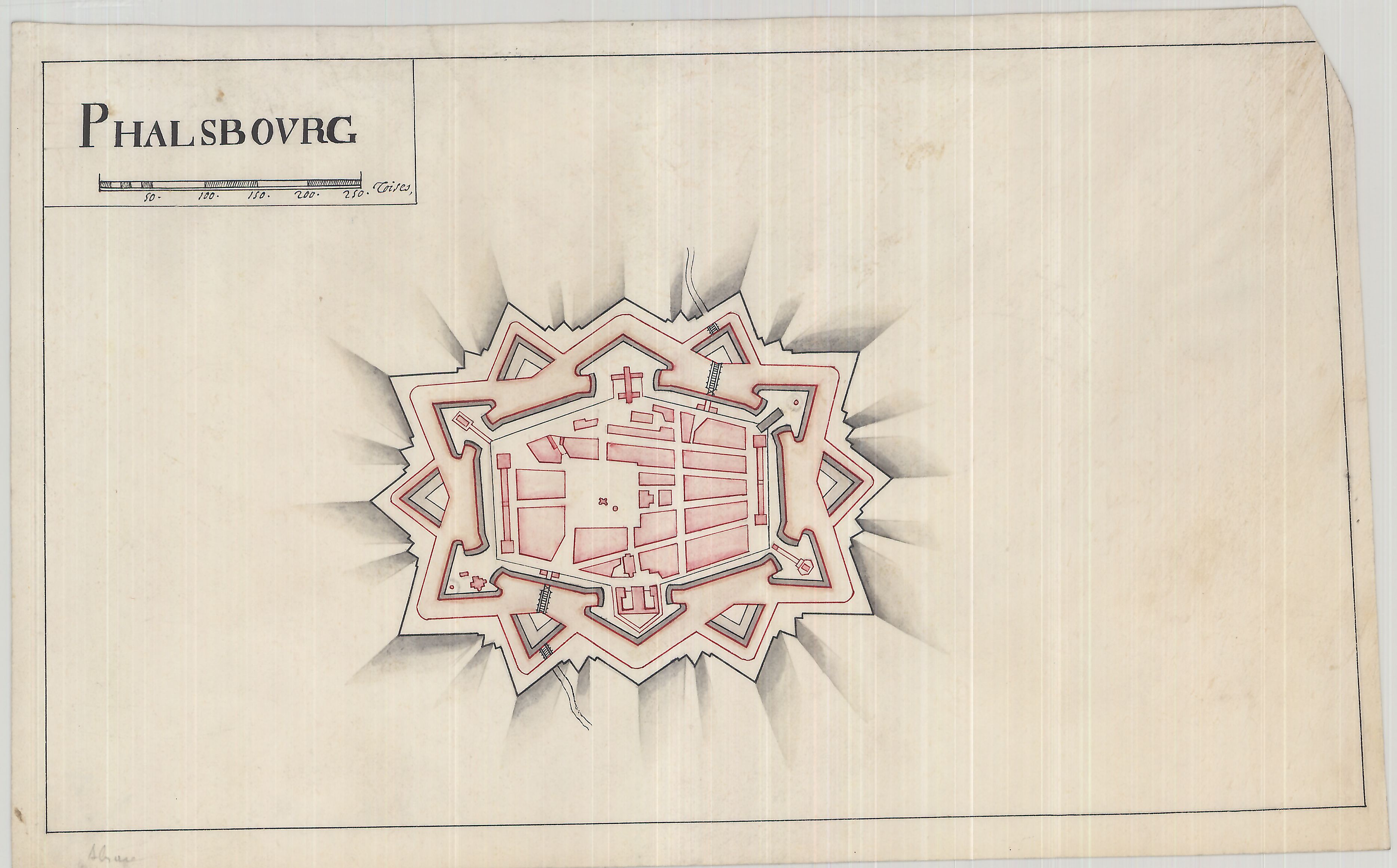|
Alsace Bossue
The Alsace bossue ( Alemannic and Frankish: ''S'Gromme/S'Krumme Elsass'', German: ''das krumme Elsass/ Krummes Elsass''), is a territory of Bas-Rhin in Alsace, which includes the three former cantons of Sarre-Union, Drulingen and La Petite-Pierre (today all part of the canton of Ingwiller). Just like nearby parts of Lorraine, the Alsace bossue is linguistically predominantly located into the Rhine Franconian area. History The current borders of this territory date back from 1793, when the County of Saarwerden was annexed by the young French First Republic. Initially, the county of Saarwerden was meant to be fragmented and distributed between the departments of Moselle, Meurthe Department, Meurthe and/or Bas-Rhin, but its inhabitants were against the fragmentation, and as such the project was afterwards cancelled. The county was then temporarily absorbed by the nearby districts of Moselle and Meurthe until a final decision was made. Towards the end of the year 1793, it was fina ... [...More Info...] [...Related Items...] OR: [Wikipedia] [Google] [Baidu] |
Bouquenom
Sarre-Union () is a commune in the Bas-Rhin department Department may refer to: * Departmentalization, division of a larger organization into parts with specific responsibility Government and military *Department (administrative division), a geographical and administrative division within a country, ... in Grand Est in north-eastern France. It consists of two older towns that were unified on 16 June 1794. On the east bank of the river Sarre is the town of Bouquenom () and on the west bank the town of Ville Neuve de Sarrewerden (). It was renamed ''Saar-Buckenheim'' between 1940 and 1944 during Nazi Germany occupation. See also *[...More Info...] [...Related Items...] OR: [Wikipedia] [Google] [Baidu] |
Vescheim
Vescheim (german: Weschheim) is a commune in the Moselle department in Grand Est in north-eastern France. See also * Communes of the Moselle department The following is a list of the 725 communes of the Moselle department of France. The communes cooperate in the following intercommunalities (as of 2020):Communes of Moselle (department) {{SarrebourgChâteauSalins-geo-stub ... [...More Info...] [...Related Items...] OR: [Wikipedia] [Google] [Baidu] |
Phalsbourg
Phalsbourg (; ; Lorraine Franconian: ''Phalsburch'') is a commune in the Moselle department in Grand Est in north-eastern France, with a population of about 5,000. It lies high on the west slopes of the Vosges, northwest of Strasbourg by rail. In 1911, it contained an Evangelical and a Roman Catholic church, a synagogue and a teachers' seminary. Its industries then included the manufacture of gloves, straw hats and liqueurs, and quarrying. History The area of the city of Phalsbourg, originally Pfalzburg, was originally part of the principality of Lützelstein, under the overlordship of Luxembourg, then the bishops of Metz and of Strasbourg, before becoming possessed by the Dukes of Palantine Veldenz, all within the Holy Roman Empire of the German Nation. In 1570, Duke Georg Johann I of Palantine Veldenz founded the town of Pfalzburg as a refuge for Reformed Protestants expelled from of the Duchy of Lorraine, and as an administrative center of his holdings. But the cost f ... [...More Info...] [...Related Items...] OR: [Wikipedia] [Google] [Baidu] |
Montbronn
Montbronn (; ; Lorraine Franconian: ''Mumere'') is a commune in the Moselle department of the Grand Est administrative region in north-eastern France. The village belongs to the Pays de Bitche and to the Northern Vosges Regional Nature Park. As of 2017, the village's population is 1,630. The inhabitants of the commune are known as ''Montbronnois'' or ''Montbronnoises''. Geography Location Located east of the Moselle department, the commune is part of the Pays de Bitche; It borders the neighboring Bas-Rhin department, a territory also known as ''Alsace bossue''.. The village is located south-west of Bitche, the county's chief town, south-east of Sarreguemines, the arrondissement's subprefecture, about east of Metz, the department's prefecture and about north-west of Strasbourg, the region's prefecture. Neighboring communes include Rahling to the west, Bining, Rohrbach-lès-Bitche and Enchenberg to the north, Saint-Louis-lès-Bitche and Meisenthal to the east, and ... [...More Info...] [...Related Items...] OR: [Wikipedia] [Google] [Baidu] |
Lixheim
Lixheim is a commune in the Moselle department in Grand Est in north-eastern France. The commune Vieux-Lixheim lies 1 km to the north-west. See also * Communes of the Moselle department The following is a list of the 725 communes of the Moselle department of France. The communes cooperate in the following intercommunalities (as of 2020):Communes of Moselle (department) Duchy of Lorraine {{SarrebourgChâteauSalins-geo-stub ... [...More Info...] [...Related Items...] OR: [Wikipedia] [Google] [Baidu] |
Hangviller
Hangviller () is a commune in the Moselle department in Grand Est in north-eastern France. See also * Communes of the Moselle department The following is a list of the 725 communes of the Moselle department of France. The communes cooperate in the following intercommunalities (as of 2020):Communes of Moselle (department) {{SarrebourgChâteauSalins-geo-stub ... [...More Info...] [...Related Items...] OR: [Wikipedia] [Google] [Baidu] |
Bourscheid, Moselle
Bourscheid (german: Burscheid) is a commune in the Moselle department in Grand Est in northeastern France. Population See also * Communes of the Moselle department The following is a list of the 725 communes of the Moselle department of France. The communes cooperate in the following intercommunalities (as of 2020):Communes of Moselle (department) {{SarrebourgChâteauSalins-geo-stub ... [...More Info...] [...Related Items...] OR: [Wikipedia] [Google] [Baidu] |
Berling, Moselle
Berling (; ) is a commune in the Moselle department in Grand Est in northeastern France. Population See also * Communes of the Moselle department The following is a list of the 725 communes of the Moselle department of France. The communes cooperate in the following intercommunalities (as of 2020):Communes of Moselle (department) {{SarrebourgChâteauSalins-geo-stub ... [...More Info...] [...Related Items...] OR: [Wikipedia] [Google] [Baidu] |
Achen, Moselle
Achen (; Lorraine Franconian: ''Ache'', german: Achen) is a commune in the Moselle department of the Grand Est administrative region in north-eastern France. The village belongs to the Pays de Bitche. Population See also * Communes of the Moselle department The following is a list of the 725 communes of the Moselle department of France. The communes cooperate in the following intercommunalities (as of 2020):Communes of Moselle (department) {{Sarreguemines-geo-stub ... [...More Info...] [...Related Items...] OR: [Wikipedia] [Google] [Baidu] |
Electoral Palatinate
The Electoral Palatinate (german: Kurpfalz) or the Palatinate (), officially the Electorate of the Palatinate (), was a state that was part of the Holy Roman Empire. The electorate had its origins under the rulership of the Counts Palatine of Lotharingia from 915, it was then restructured under the Counts Palatine of the Rhine in 1085. These counts palatine of the Rhine would serve as prince-electors () from "time immemorial", and were noted as such in a papal letter of 1261, they were confirmed as electors by the Golden Bull of 1356. The territory stretched from the left bank of the Upper Rhine, from the Hunsrück mountain range in what is today the Palatinate region in the German federal state of Rhineland-Palatinate and the adjacent parts of the French regions of Alsace and Lorraine (bailiwick of Seltz from 1418 to 1766) to the opposite territory on the east bank of the Rhine in present-day Hesse and Baden-Württemberg up to the Odenwald range and the southern Krai ... [...More Info...] [...Related Items...] OR: [Wikipedia] [Google] [Baidu] |
Kingdom Of France
The Kingdom of France ( fro, Reaume de France; frm, Royaulme de France; french: link=yes, Royaume de France) is the historiographical name or umbrella term given to various political entities of France in the medieval and early modern period. It was one of the most powerful states in Europe since the High Middle Ages. It was also an early colonial power, with possessions around the world. France originated as West Francia (''Francia Occidentalis''), the western half of the Carolingian Empire, with the Treaty of Verdun (843). A branch of the Carolingian dynasty continued to rule until 987, when Hugh Capet was elected king and founded the Capetian dynasty. The territory remained known as ''Francia'' and its ruler as ''rex Francorum'' ("king of the Franks") well into the High Middle Ages. The first king calling himself ''rex Francie'' ("King of France") was Philip II, in 1190, and officially from 1204. From then, France was continuously ruled by the Capetians and their cad ... [...More Info...] [...Related Items...] OR: [Wikipedia] [Google] [Baidu] |



